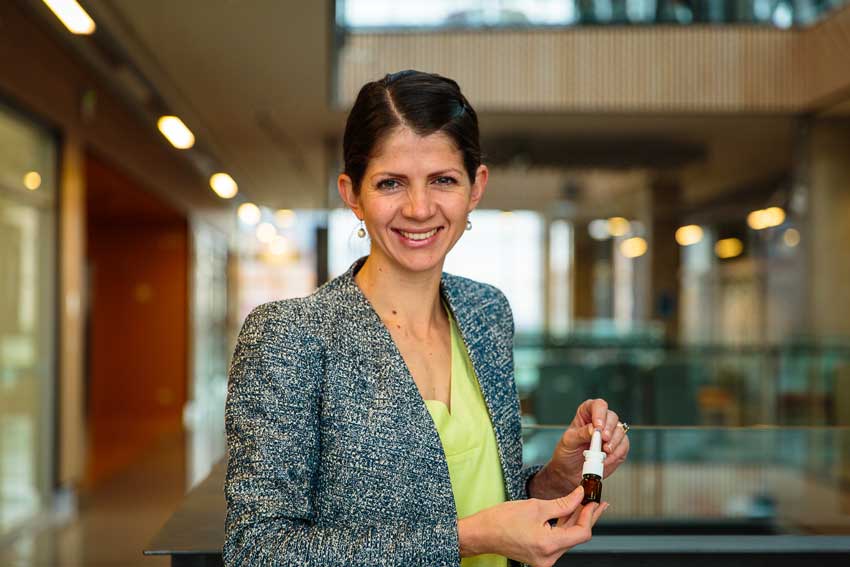
A recent study has found that just one dose of the ‘love hormone’, oxytocin, might help cure those suffering from body dysmorphic disorder (BDD).
Results from the breakthrough study, published in the journal Psychoneuroendocrinology, run by Australian Catholic University (ACU) and Swinburne University of Technology found that a single dose of oxytocin through a nasal spray – which enters the brain – was able to restore brain functions to normal levels in those tested.
“Oxytocin is a powerful hormone produced in the brain which promotes positive behaviours,” said Dr Izelle Labuschagne neuroscientist and Research Fellow in the Cognition and Emotion Research Centre at ACU’s School of Behavioural and Health Sciences
Currently affecting about two per cent of the population, or 492 Australians, BDD is a psychiatric condition where people adopt extremely distorted negative beliefs about their appearances.
They see themselves as ugly, malformed, misshapen or hideous. Often a person with BDD will fixate on one aspect of their appearance (such as their skin, or the shape of their nose), and fall into repetitive behaviours around that feature – constantly checking the mirror, excessive grooming, skin picking or touching the perceived problem.
“People with BDD have a constant preoccupation and obsession with appearance,”” said Dr Labuschagne.
“Most spend a significant proportion of their day, up to 10 hours, obsessing about their appearance.
“They will either spend time in front of a mirror, trying to alter what they don’t like, or they may also camouflage themselves by wearing certain clothes.”
The condition usually presents in people around age 16 but can affect anyone.
Recognised as a mental health illness in 1987, BDD is one of the “most under-recognised and understudied of the severe mental health conditions”, and some researchers estimate the prevalence rate at much higher than two per cent.
“BDD is often associated with depression and anxiety, especially social anxiety, so they may also isolate themselves because they are worried about people’s judgements and their appearance,” she said.
Currently BDD is treated with a mixture of cognitive behavioural therapy and antidepressant medication.
“[The research] helps us to understand the underlying mechanisms of the disorder and could lead to new treatment approaches for BDD as well as other related mental health conditions such as body image disorders, eating disorders and social anxiety.
When asked if the treatment could go towards helping symptoms for people suffering from transgenderism, Dr Labuschagne said this was outside the scope of the research.
The spray treatment will need to undergo further testing before it can become a permanent fixture in treatment. “The next step for us in our research lab is to conduct a large-scale clinical trial that will test whether the effects of oxytocin persist over a longer time frame if administered repeatedly over days and weeks,” she said.
“From there it will be tested whether oxytocin should be given in conjunction with other treatments, and what constitutes optimal dosage.”
Related article:
